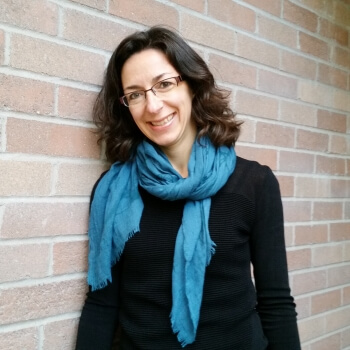Thu, 12 July 2018
So have I and it is really difficult coming up with a clear answer when you read the research about general brain fitness and memory in the scientific literature. Here’s the great news: On this episode of Magnetic Memory Method Podcast, you’ll hear from Dr. Christina Till. Dr. Till is an Associate Professor in the Clinical Developmental Area in the Faculty of Health at York University. As she shared her scientific research on memory, multiple sclerosis (MS), Huntington’s disease and other areas of mental cognition, this point leapt out at me: “My dream study [would] combine the benefits of physical activity with cognitive training. To maximize brain growth, we should be doing both.” If you’d like to peer behind the scenes of how memory research is conducted with softwares like Cogmed in the mix and what the conclusions really mean when it comes to improving memory , download this podcast episode now. And get ready to dive deep because there’s a ton of substantial information you will learn from Dr. Till’s research and work and how scientists develop their studies and draw their conclusions. Press play now and you’ll discover:
Bonus Alternative To Cogmed For Brain ExerciseOn this episode, I mentioned to Christine that I was learning to juggle and recite the alphabet backwards. Here’s a demonstration of this simple brain exercise and how you can learn it without any frustration by following a few simple principles: Part Two: Christian decides to share his juggling chops while reciting a poem in a video response: And then another follow-up with coins! Enjoy (and send us your video too if you’ve got one so we can feature your authentic brain exercise techniques)! Further Resources on the Web, This Podcast and the MMM Blog: Christine Till Profile profile on York University’s website Memory training points to new directions for treatment of Huntington’s disease Why Bilingualism Makes For a Healthier Brain Coconut Oil and Memory: Can It Boost Your Brain [Advanced Study] Binaural Beats And Memory: Can This Crazy Music Make You Smarter The post The Real Data You Should Know About Cogmed For Brain Exercise appeared first on Magnetic Memory Method - How to Memorize With A Memory Palace.
Direct download: The_Real_Data_You_Should_Know_About_Cogmed_For_Brain_Exercise.mp3
Category:Memory Method Tips -- posted at: 4:13am EDT |
The Magnetic Memory Method Podcast

Categories
generalMemory Improvement Tools
Memory Method Tips
Brain Exercises for Memory Improvement
Memory Improvement Case Studies
Podcast
Guest Post
Memory Palace Tactics
Practical Memory Techniques
Uncategorized
Improve Memory Q&A
Archives
AprilMarch
February
January
December
November
October
September
August
July
June
May
April
March
February
January
December
November
October
September
August
July
June
May
April
March
February
January
December
November
October
September
August
July
June
May
April
March
February
January
December
November
October
September
August
July
June
May
April
March
February
January
December
November
October
September
August
June
May
April
March
February
January
December
November
October
September
August
July
June
May
April
March
February
January
December
November
October
September
August
July
June
May
April
March
February
January
December
November
October
September
August
July
June
May
April
March
February
January
December
November
October
September
August
July
June
May
April
March
February
January
December
November
October
September
August
July
June
May
April
March
February
January
December
November
September
| S | M | T | W | T | F | S |
|---|---|---|---|---|---|---|
| 1 | 2 | 3 | 4 | 5 | 6 | |
| 7 | 8 | 9 | 10 | 11 | 12 | 13 |
| 14 | 15 | 16 | 17 | 18 | 19 | 20 |
| 21 | 22 | 23 | 24 | 25 | 26 | 27 |
| 28 | 29 | 30 | ||||
Syndication

 Have you ever wondered about apps like Cogmed for brain exercise and memory improvement really work?
Have you ever wondered about apps like Cogmed for brain exercise and memory improvement really work?